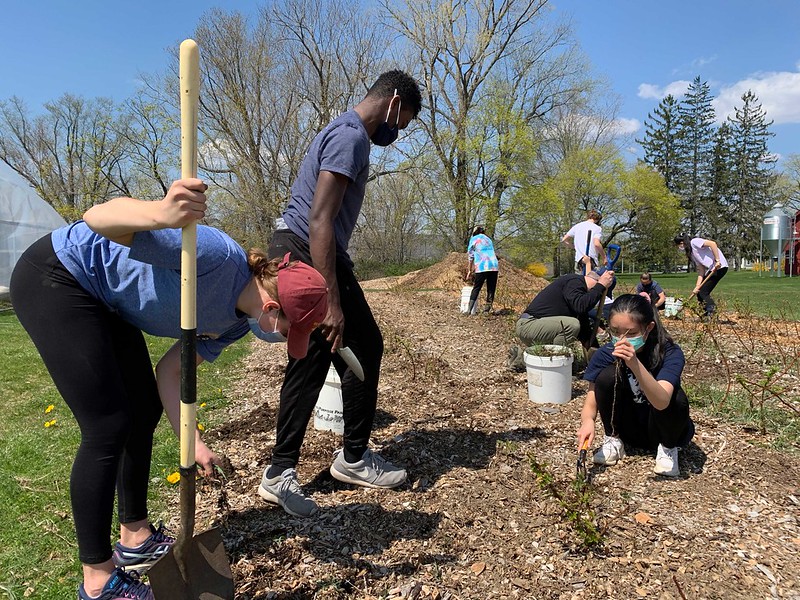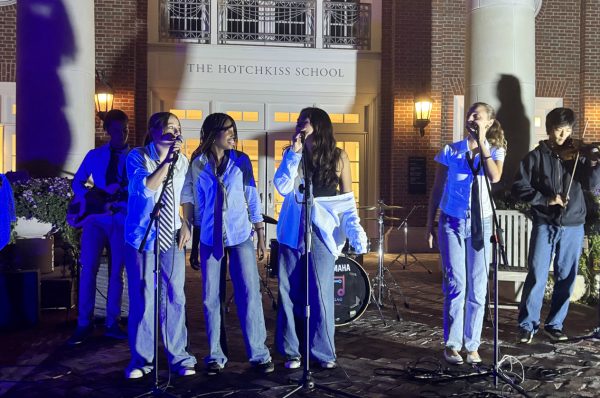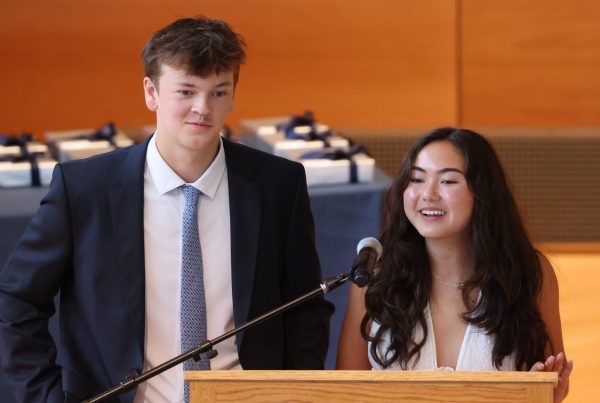Community Comes Together for Eco Week
Students pull up weeds at Fairfield Farm during Eco Week.
This past weekend, over 120 students and faculty spent their Saturday morning volunteering at Fairfield Farm, cleaning up the campus and roadsides, and maintaining local trails.
For the past 25 years, Eco Day has educated students about and allowed them to participate in the school’s environmental and sustainability initiatives. Mr. Joshua Hahn, assistant head of school, director of strategic initiatives, and club advisor to Students for Environmental Action (SEA), said, “Eco Day represents one of the few times the whole school stops and does service. The environmental service projects we accomplish each year are meaningful for the town…and I think it says something about the school that real time is given to do that work.”
In previous years, the day began with a keynote speaker presentation in the morning, followed by an afternoon service program during which students, staff, and faculty worked on service projects on campus and in the local community.
This year, however, COVID-19 restrictions on gatherings and travel transformed Eco Day into Eco Week. This year’s Eco Week officially began on Monday, April 19, when Dr. Dalee Sambo Dorough and Dr. Gary Kofinas spoke to the school about climate change in the Arctic and the ways in which indigenous knowledge of the region can guide global responses. Eliza Ross ’22, co-head of SEA said, “Environmentalism, unfortunately, often becomes an issue that is not intersectional. You hear one story and one narrative, [usually] from the white perspective. By learning about indigenous populations and how they’re affected by climate change, we can broaden our horizons to see how different communities are affected.”
Aspects of a traditional Eco Day, including keynote speakers and service opportunities, remained central to Eco Week. In addition, Mr. Mario Williams ’12, instructor in environmental science, said, “We are encouraging faculty members to design academic lessons on topics such as climate change and indigenous rights movements, and various student-run clubs to lead similar discussions centered on the intersection of the environment, politics and social justice.”
To end the week, SEA co-heads, Margo Donohue ’22, Meghana Annamaneni ’21, and Ross, with the assistance of Ms. Amy Sidran, farm education coordinator, Mr. Hahn, and Mr. Williams, organized a variety of optional volunteer activities on Saturday, April 24. At the farm, students expanded vegetable gardens, removed invasive species, and repaired a greenhouse. Emilie Clitus ’24, who volunteered, said, “I really enjoyed [the experience]. I did it with some friends, [which made it] fun, and just being in nature was nice. It’s really important to take care of our planet and there’s so many different ways that we can do that. It doesn’t just have to be picking up trash; farming, [is also] a way of taking care of our planet.”
Additional environmental resources and opportunities can be found on SEA’s website. Ms. Sidran said, “I hope that students are aware of some of the [environmental awareness] actions that are happening on campus…[and by involving themselves, they learn] how small actions can make big impacts.”





